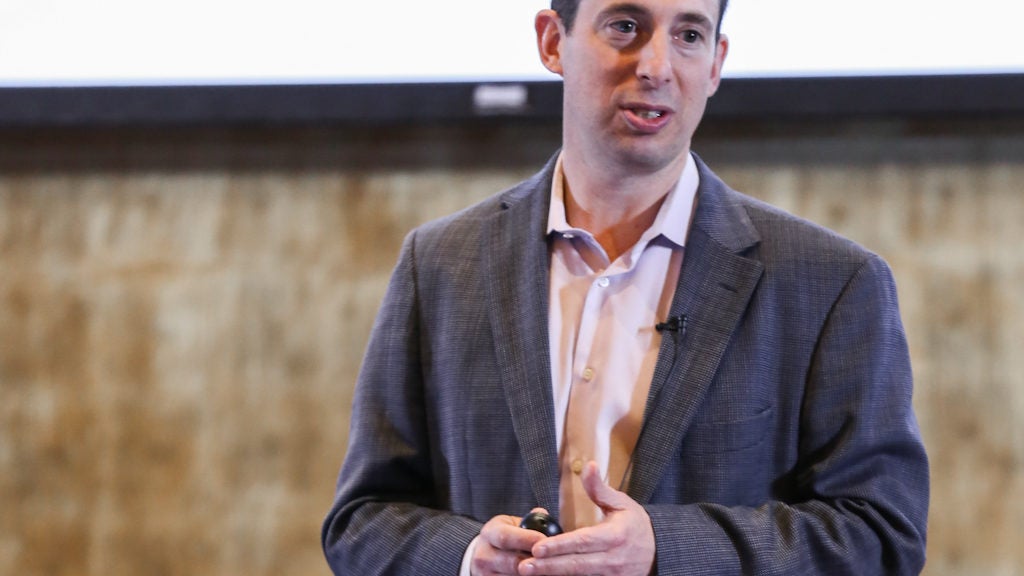Alone but not Lonely: Acclaimed Author Explains New Trend to Georgetown Audience in Qatar

Georgetown University in Qatar (GU-Q) recently hosted celebrated prize-winning author Dr. Eric Klinenberg as a Faculty Distinguished Lecture speaker. His topic was living alone, and aging alone, without loneliness.
Klinenberg is a professor of sociology and director of the Institute for Public Knowledge at New York University. His talk at GU-Q, Going Solo: The Extraordinary Rise and Surprising Appeal of Living Alone, was based on research found in his best-selling recent book of the same name.
The overarching message during the lecture was that it is not unusual for people living alone to have more robust social lives than people living in multi-person households. “Living alone is very different from being alone,” explained Klinenberg. “We often confuse them and we shouldn’t.”
During research about living alone, and the rise of aging alone, Klinenberg learned that only a small portion of people living on their own in America are actually isolated or lonely. Further, he showed that in world-rankings, the U.S. is twelfth for national percentage of single person households when proportionately compared to the total number of households in America. “This is not an American story at all,” Klinenberg said. “Living alone is most common in Scandinavian countries, for example.”
Klinenberg explained that loneliness is a physiological response our bodies give when we are not getting the social connections we need. But, when we live in cities, as many single people do, Klinenberg said we “turn the streets into our living room…we live outside.” He also said studies show that those who live alone are more likely to volunteer with civic organizations, and that many older women are more interested in having someone to go out with rather than someone to go home to.
Regarding the effect of technology on how we live, Klinenberg posits that “we have developed very intimate relationships with our iPads and smart phones.” He added that hi-tech gadgets are “overwhelmingly seductive…studies show the heaviest users of social media are more social face to face…it enhances their social life.” According to Klinenberg, you can be home alone and be very much engaged with others via Skype, instant messaging, and other digital formats.
GU-Q’s Professor Gary Wasserman said: “With his distinguished record of research and internationally-acclaimed publications, both in the field and in the public sector, Professor Klinenberg is an eminently-qualified expert on this important trend of living alone…a trend that had gone relatively unnoticed in sociology and social affairs until Professor Klinenberg brought it to our attention. We are fortunate to have such a distinguished guest who can talk about this important societal change, a change that will surely have a tremendous impact on our lives and on the future of many communities around the world.”
In addition to Going Solo, Klinenberg is the author of Heat Wave: A Social Autopsy of Disaster in Chicago and Fighting for Air: The Battle to Control America’s Media. He is editor of the journal Public Culture and is an affiliated faculty member of the Wagner School of Public Service and the Department of Media, Culture, and Communications.
Klinenberg appears frequently on public radio and television and has contributed to The New Yorker, The New York Times Magazine, Time, Fortune, Rolling Stone, The London Review of Books, Le Monde Diplomatique, and the radio program This American Life.